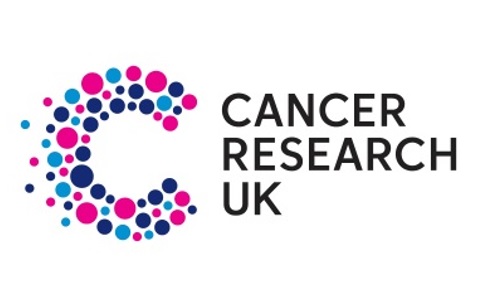Trial Overview
Trial Team
Essential Trial Documentation
Publications and Presentations
Title
IELSG 32 - Randomized phase II trial on primary chemotherapy with high-dose methotrexate and high-dose cytarabine with or without thiotepa, and with or without rituximab, followed by brain irradiation vs. high-dose chemotherapy supported by autologous stem cells transplantation for immunocompetent patients with newly diagnosed primary cns lymphoma
Description
A randomised Phase II Trial on primary chemotherapy with high-dose Methotrexate (MTX) and high-dose Cytarabine (Ara-C), with or without Thiotepa, and with or without Rituximab. This is followed by brain irradiation vs. high-dose chemotherapy supported by autologous stem cell transplantation for immunocompetent patients with newly diagnosed primary CNS lymphoma (PCNSL).
Objectives
To determine, at first randomisation, the activity of three different chemotherapy combinations with high-dose Methotrexate (HD-MTX) + high-dose Cytarabine (HD-araC), HD-MTX + HD-araC + Rituximab and HD-MTX + HD-araC + Rituximab + Thiotepa in patients with newly diagnosed PCNSL.
To determine, at second randomisation, the efficacy of two consolidation strategies: conventional whole-brain radiotherapy (WBRT) vs. highdose chemotherapy supported by autologous stem cell transplantation (HDC + ASCT) in patients with newly diagnosed PCNSL.
Trial Design
This is a multicenter open label randomized phase II trial.
Enrolled PCNSL patients will be stratified according to the IELSG score and randomized to receive MTX + Ara-C (Arm A) or MTX + Ara-C + rituximab (Arm B) or MTX + Ara-C + rituximab + thiotepa (Arm C) as primary chemotherapy. Chemotherapy will be administered every three weeks. The maximum number of chemotherapy induction courses will be 4. Patients in SD or better after two courses will receive two more courses of the same primary chemotherapy regimen. Stem-cells harvest will be performed in the three arms after the second course. After 4 courses response assessment will be performed.
Patients who will not achieve SD or better after the 4th course, as well as those who will experience progressive disease (PD) at any time and those who will not achieve a sufficient stem cell harvest, will receive WBRT 36-40 Gy +/- tumor bed boost of 9 Gy. Patients who will achieve SD or better after the 4th course will be stratified according to objective response to primary chemotherapy (CR vs. PR+SD) and to primary chemotherapy regimen (A vs. B vs. C) and randomly allocated to receive WBRT 36 Gy +/- boost 9 Gy (Arm D) or BCNU + Thiotepa + APBSCT (Arm E) as a consolidation therapy. Patients in CR after WBRT or APBSCT will remain in follow-up. Patients who will not achieve a CR after WBRT will be managed according to physician’s preferences. Patients who will not achieve a CR after APBSCT will be referred to WBRT.
At the end of the study a Monitoring Committee will review the data concerning the CR rate and the safety profile and will take the decision whether to continue with a phase III trial. In this case, the patients enrolled in the phase II study will be included in the phase III analysis.
Trial Status
Closed to Recruitment - in follow-up
Population
126 immunocompetent patients with newly diagnosed PCNSL of any histological category eligible for high-dose chemotherapy supported by autologous stem cell transplantion.
Consideration
Patients will be centrally registered and simultaneously randomised at the IELSG Coordination and Data Management Office in Switzerland after the verification of the inclusion criteria and prior to the start of treatment.

This trial is funded by Cancer Research UK (award reference no. C36711/A12115)
Links to external websites
The University cannot accept responsibility for external websites.
Trial Legal Documents
IELSG-32 Laboratory and Pharmacy Manual v2 26-Sep-2012
IELSG-32 Informed Consent Form v5. 30-Jan-2013
IELSG-32 Patient Information Sheet v5 30-Jan-2013
IELSG-32 Summary Information Sheet v1 31-May-2011
IELSG-32 Site Delegation Log v4 19-Feb-2013
IELSG-32 Protocol v1.7 30-Oct-2015
IELSG-32 Study Acknowledgement v1.7 30-Oct-2015
Trial CRFs
IELSG-32 CRFs - v1.3.1. 10-May-2010
IELSG-32 Instructions for completion of SAE v3 26-Sep-2012
IELSG-32 Follow Up Relapse Form v2 30-Oct-2015
Patient Documents
IELSG-32 Mini Mental Status Examination
IELSG-32 Patient Screening and Recruitment Log v4 02-May-2013
IELSG-32 Thiotepa Ordering Process Flowchart (password protected) v3 22-Mar-2012
IELSG-32 Thiotepa Fax Order - section 7.4 v3 26-Sep-2012
IELSG-32 Thiotepa Patient Weight Fax- section 7.4 - v3 26-Sep-2012
MATRix induction followed by autologous stem cell transplant or whole-brain irradiation in primary CNS lymphoma. 7-year results of the IELSG32 randomized trial.
Oral abstract presentation at the International Conference on Malignant Lymphoma, June 2021
Matrix followed by autologous transplant is associated with excellent survival and neutrotolerability in primary CNS lymphoma: Results of the IELSG-32 trial at a median follow-up of 88 months.
Oral abstract presentation at the European Haematology Association (EHA) Virtual Congress, June 2021
Andrés J M Ferreri, Kate Cwynarski, et al.
Whole-brain radiotherapy or autologous stem-cell transplantation as consolidation strategies after high-dose methotrexate-based chemoimmunotherapy in patients with primary CNS lymphoma: results of the second randomisation of the International Extranodal Lymphoma Study Group-32 phase 2 trial.
Lancet Haematology, 2017 Nov;4(11):e510-e523. doi: 10.1016/S2352-3026(17)30174-6. Epub 2017 Oct 17.
Andrés J M Ferreri, Kate Cwynarski, et al.
Chemoimmunotherapy with methotrexate, cytarabine, thiotepa, and rituximab (MATRix regimen) in patients with primary CNS lymphoma: results of the first randomisation of the International Extranodal Lymphoma Study Group-32 (IELSG32) phase 2 trial.
Lancet Haematology, 2016 May;3(5):e217-27. doi: 10.1016/S2352-3026(16)00036-3. Epub 2016 Apr 6.